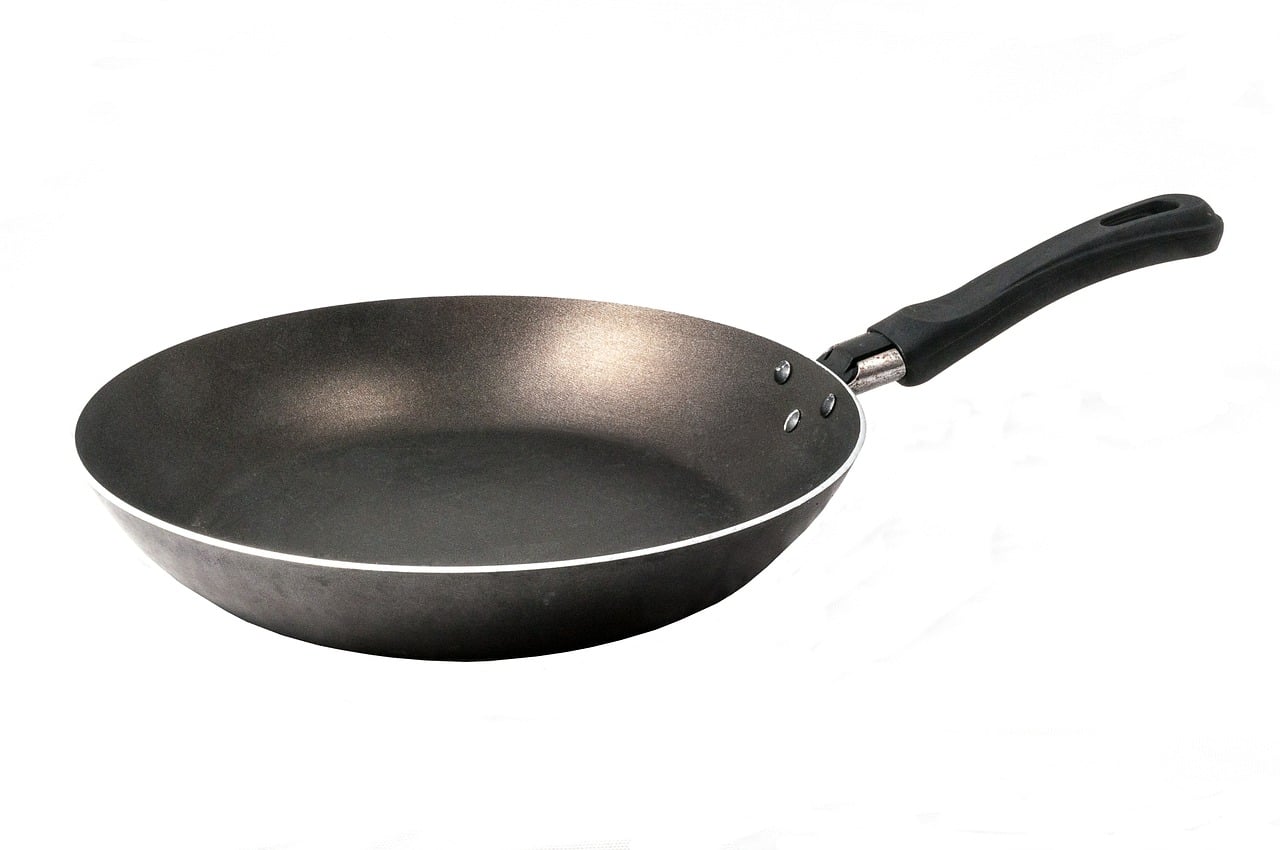What Pans Are Dishwasher Safe?
We can only recommend two kinds of pans that are dishwasher safe: stainless steel pans and aluminum pans. As for nonstick pans, we would give a conditional yes depending on what the manufacture states in the care or maintenance instructions. These two classes of pans are ideal because they are very durable, they don’t mind being exposed to high water temperatures inside the dishwasher, and they’re awesome for cooking, of course. The main point of contention for dishwasher-safe pans is they will survive the heat of the water? If even one component cannot handle the heat, then the answer is no, you are better off washing the pan manually, so you know what is happening in the first place.
Now, let’s say that your pans aren’t cleaning up as they should; what can you do? Below are some tips to completely clean stainless steel pans when there is some stains leftover from the dishwasher:
- Stainless steel doesn’t mean stain-proof, so there will be many instances when you have to use some elbow grease to clean your stainless steel pans completely. If there are leftover stains on the stainless steel pain, use a hard enough dish brush and apply a cleaner to the surface. Scrub with warm water until the stain disappears. This is especially useful for food debris and burnt food, which can be painful to remove regardless of the pan’s metal.
- Never submerge a hot pan in cool water. Let the metal cool down first before submerging. Even stainless steel can suddenly warp when the cooling is too rapid. This is part of the maintenance of stainless steel pans.
- Have a good scouring pad at your disposal when cleaning tough stains. If the brush doesn’t work, you may need extra pressure to clean the pan instead. Now, some scouring pads may be too heavy-duty for shiny stainless steel, so using a softer sponge may be necessary to prevent damage to the surface of your stainless steel cookware. However, it may take longer to clean stainless steel surfaces with these, so prepare yourself to stay a little longer in the kitchen.
- Oil stains and food stains can be removed more easily by applying lemon juice and a generous baking soda. Soak the affected areas first, and then scrub away diligently before rinsing with some warm water. Warm water activates the baking soda further and gives the cleaning agents the extra push to completely remove the stains on the stainless steel pan. For very severe stain cases, create a baking soda paste and let the paste sit on the stains for 24 hours. This should be enough time for the baking soda to lift the stains and remove them completely chemically.
Can You Wash Non-Stick Pans in Dishwasher?
Generally speaking, yes, it’s fine to put nonstick pans in dishwashers. If you have fairly new nonstick pans, they should do just fine with hot water in the dishwasher.
Now, there may be some conflicting advice on the Internet about washing non-stick pans in the dishwasher. The conflict stems from the fact that earlier models of nonstick pans have nonstick layers corroded by chlorine.
If your dishwasher uses a cleaning formula with chlorine, you may want to skip it completely and wash your nonstick pans manually. Another option would be to check the manufacturer’s website and see if they state that the pans can be exposed to chlorine without resulting in the nonstick layer’s stripping.
Should You Put Teflon Pans In The Dishwasher?
Original Teflon pans are dishwasher safe and can be placed in a dishwasher without the risk of damaging the surface of these pans. However, since Teflon is also a nonstick pan, there is a small risk that excess weathering may occur on the surface of the pan, which can directly reduce the usefulness of the pan in the long term.
Eventually, we all know that nonstick pans will eventually lose their nonstick layers with heat and constant use. Cooking at high temperatures with these pans will likely reduce the usefulness outright. If you want to increase your nonstick pans’ lifespan, always cook with low or medium heat, and don’t overdo the temperature at any point. For higher temperature cooking that is frequent and regular, we recommend using cast iron skillets instead. Cast iron skillets and copper pans can tolerate high temperature cooking better, with lower chances of warping, too.
Can Copper Pans Go in The Dishwasher?
Copper pans are among the priciest cookware around, and investing in copper pans is no joke. And despite the durability of these pans, we do not recommend putting them in the dishwasher. While the copper pans’ structural integrity is awesome, there is a huge chance that tossing them in the dishwasher will lead to untimely surface corrosion and discoloration.
This being the case, we highly recommend that instead of using a dishwasher to clean your copper cookware, it would be best to hand-wash them with your choice of dish soap (gentle is key) and some warm water.
Another difference with copper pans is you will likely want to keep them polished and shiny on the outside. Clear the copper cookware’s surface with some fresh lemon slices.
The lemon will clear away any corrosion and the chemical reaction that results from the copper’s interaction with sulfates in the air. Free-floating sulfates in the air are the number one cause of discoloration of many metals, including silver. So don’t be surprised that over time, your copper pans might be showing signs of corrosion and discoloration despite all the care you have been giving them.
Unless you are putting your copper pans in a super-controlled environment with no contaminants, you will see corrosion.

